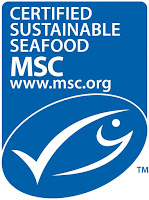Initial broadcast - 8:00 pm Friday September 25, 2015, RTHK DAB31
To listen to the show's initial broadcast, please visit RTHK's DAB 31.
To listen to the show after the initial broadcast, please visit the archive here. (Skip to 7m45s.)
Every single meal we eat has to come in one way or another from the environment. Pasta, noodles, even dim sum or a sandwich all comes from plants and animals. We begin this week to look at how the environment provides the food we need to keep us alive, and we turn to the seas! Dr. Allen To of the WWF's Footprint Programme joins us to tell us about his work on sustainable seafood. The sea does not have unlimited fish, and at the moment we're over exploiting our seas. To have fish and healthy marine ecosystems in the future, we need to carefully rethink our ways of getting food.
Hong Kong eats a lot of seafood: in Asia we're second only to the Maldives, which is an island nation! We eat more seafood per capita than South Korea or Japan! As a city, we're having an enormous global impact on the oceans. We've already poorly managed our own local seas and depleted our fish. Dr. To explains how our habits haven't changed, and since we have money, we have just moved on to a different regions to buy up fish from somewhere else. This situation poses a dangerous risk to the livelihood of people and ecosystems in developing countries, where fishery management is not yet able to ensure safe fishing practices. Inga explains to us how we're simply not planning for the future, and fishermen, especially in developing areas, simply have a mentality of "catch as much as you can", which is driven by the market value of fish. However, as Allen and Inga discuss, seafood generally has a good "energy to animal protein" conversion rate compared with chicken, beef, or pork, and in that sense it is a more sustainable, environmentally choice, but the way in which we get our seafood needs to have better oversight for future protection. It can all be very confusing!
What can we do?
The good news is that the WWF has been working to develop a Sustainable Seafood Guide for Hong Kong, which you can have a look at to better understand what good choices you can make. They include both wild caught and farmed seafood. Allen explains how we should try to go for the seafood items in the "green" category, things like farmed filter feeders (muscles, oysters, clams), and to totally avoid things in the "red" category (bluefin tuna, shark fin, wild-caught grouper, South China Sea shrimp!). Another key thing we can do is ask restaurants for an ocean friendly menu, and the WWF has been working closely with restaurants to help them develop this. They have a list of restaurants with an ocean friendly menu, and you can download their app. He points out that no matter what, we should be asking restaurants for this so we raise awareness of this issue and demand for more sustainable seafood.
 Another important thing to look for are the ASC (Agriculture Stewardship Council for farmed seafood) and MSC (Marine Stewardship Council for wild caught seafood) certification systems. When you're shopping in the supermarket for fish, you can look for these labels on packages.
Another important thing to look for are the ASC (Agriculture Stewardship Council for farmed seafood) and MSC (Marine Stewardship Council for wild caught seafood) certification systems. When you're shopping in the supermarket for fish, you can look for these labels on packages.
This was one of the most fascinating episodes we made, and we really enjoyed talking with Allen. We hope you enjoy and will become more aware of this pressing issue facing our seas!
Credits
A special thank you to Dr. Allen To of the WWF's Footprint Programme.
Producer & Host: Kathryn Davies
Producer & Host: Inga Conti-Jerpe
Host: Fei Hung
Music: Kodomo (Concept 9 & Concept 13, Still Life Album)
Credits
A special thank you to Dr. Allen To of the WWF's Footprint Programme.
Producer & Host: Kathryn Davies
Producer & Host: Inga Conti-Jerpe
Host: Fei Hung
Music: Kodomo (Concept 9 & Concept 13, Still Life Album)


No comments:
Post a Comment
Comments?